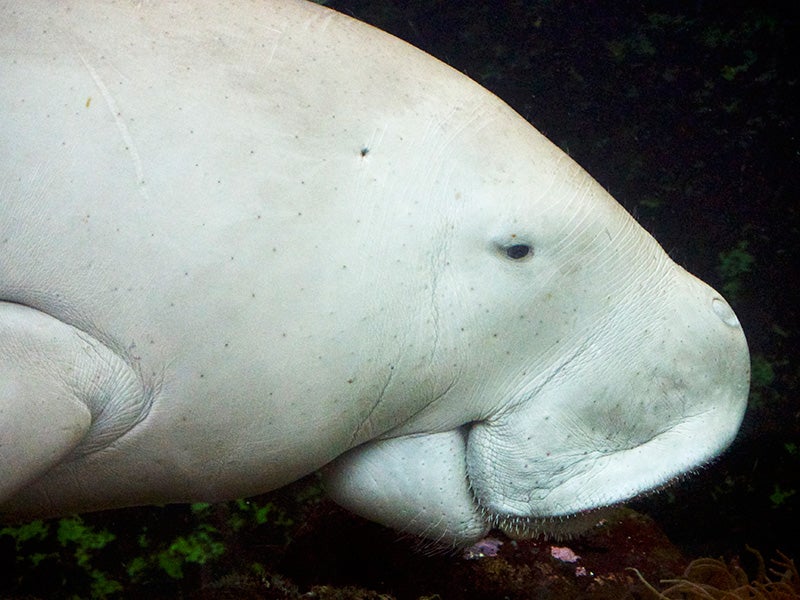Coalition of Japanese and U.S. Groups Argue Case To Save Cultural Icon and Species from U.S. Military Base Expansion in Japan
Bring case to save culturally important species to Federal Court in California
Contact
American and Japanese conservation groups argue their case to halt construction of a U.S. military airstrip in Okinawa, Japan, before a U.S. federal court today*. The U.S. base expansion would pave over some of the last remaining habitat for critically endangered Okinawa dugongs, ancient cultural icons for the Okinawan people and marine mammals related to manatees. The dugong is listed as an object of national cultural significance under Japan’s Law for the Protection of Cultural Properties, the equivalent of the U.S. National Historic Protection Act.
This is the first hearing in a historic lawsuit brought by American and Japanese conservation groups under a provision of the National Historic Preservation Act that requires the United States to avoid or mitigate any harm to places or things of cultural significance to another country. The Japanese Ministry of the Environment has listed dugongs as “critically endangered,” and the animals are also on the U.S. endangered species list. In 1997, it was estimated that there may have been as few as 50 Okinawa dugongs left in the world; more recent surveys have only been able to conclude that at least three dugongs remain in Okinawa.
The lawsuit, filed in U.S. District Court in San Francisco, is the latest in a long-running controversy over the expansion of a U.S. Marine air base at Okinawa’s Henoko Bay. Preliminary construction on the base began earlier this year.
Earthjustice, on behalf of the Center for Biological Diversity, Turtle Island Restoration Network, Japan Environmental Lawyers Federation, Save The Dugong Foundation, Anna Shimabukuro, Takuma Higashionna, and Yoshikazu Makishi, are arguing today that the Court should review the U.S. Department of Defense’s flawed efforts to examine the harm the expansion will cause for the Okinawa dugong, and stop the Department of Defense from allowing construction of the new airstrip until it has made meaningful attempts to avoid or mitigate that harm.
“Our folktales tell us that gods from Niraikanai [afar] come to our islands riding on the backs of dugongs and the dugongs ensure the abundance of food from the sea,” said Takuma Higashionna, an Okinawan scuba-diving guide who is a plaintiff in the lawsuit. “Today, leaving their feeding trails in the construction site, I believe, our dugongs are warning us that this sea will no longer provide us with such abundance if the base is constructed. The U.S. government must realize that the Okinawa dugong is a treasure for Okinawa and for the world.”
“The law requires that the Defense Department cannot allow this military base expansion project to go forward until it has made efforts to understand and minimize its effects on the dugong,” said Earthjustice attorney Sarah Burt. “When another country’s culture, heritage and revered endangered species are at stake, the U.S. must at the very least follow the law.”
“Okinawa dugongs can only live in shallow waters and are at high risk of going extinct. These gentle animals are adored by both locals and tourists. Paving over some of the last places they survive will not only likely be a death sentence for them, it will be a deep cultural loss for the Okinawan people,” said Peter Galvin, director of programs at the Center for Biological Diversity.
*Note: This court hearing was rescheduled for today due to inclement weather in San Francisco yesterday.
Where: U.S. District Court for the Northern District of California, 450 Golden Gate Avenue, San Francisco – Courtroom 5, Floor 17
When: Friday, December 12, 2015, 2:30 p.m.

Additional Resources
About Earthjustice
Earthjustice is the premier nonprofit environmental law organization. We wield the power of law and the strength of partnership to protect people's health, to preserve magnificent places and wildlife, to advance clean energy, and to combat climate change. We are here because the earth needs a good lawyer.